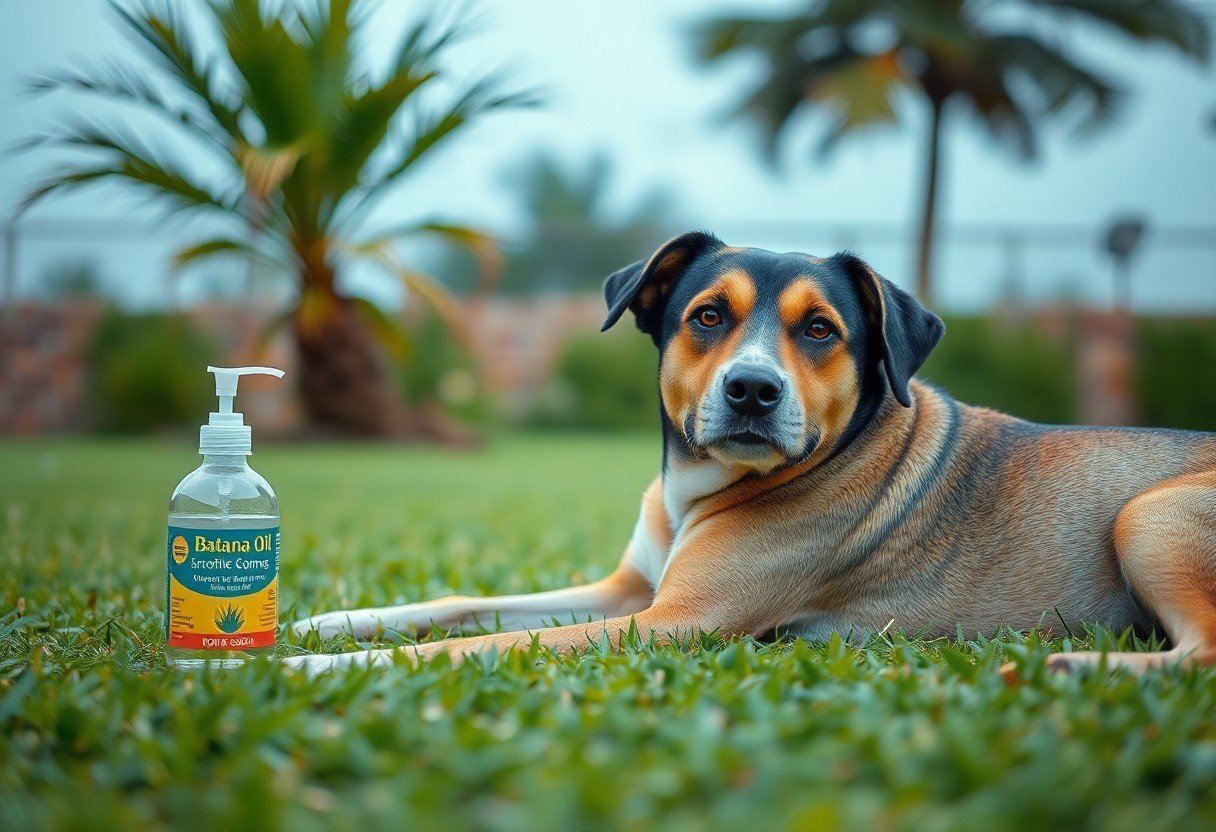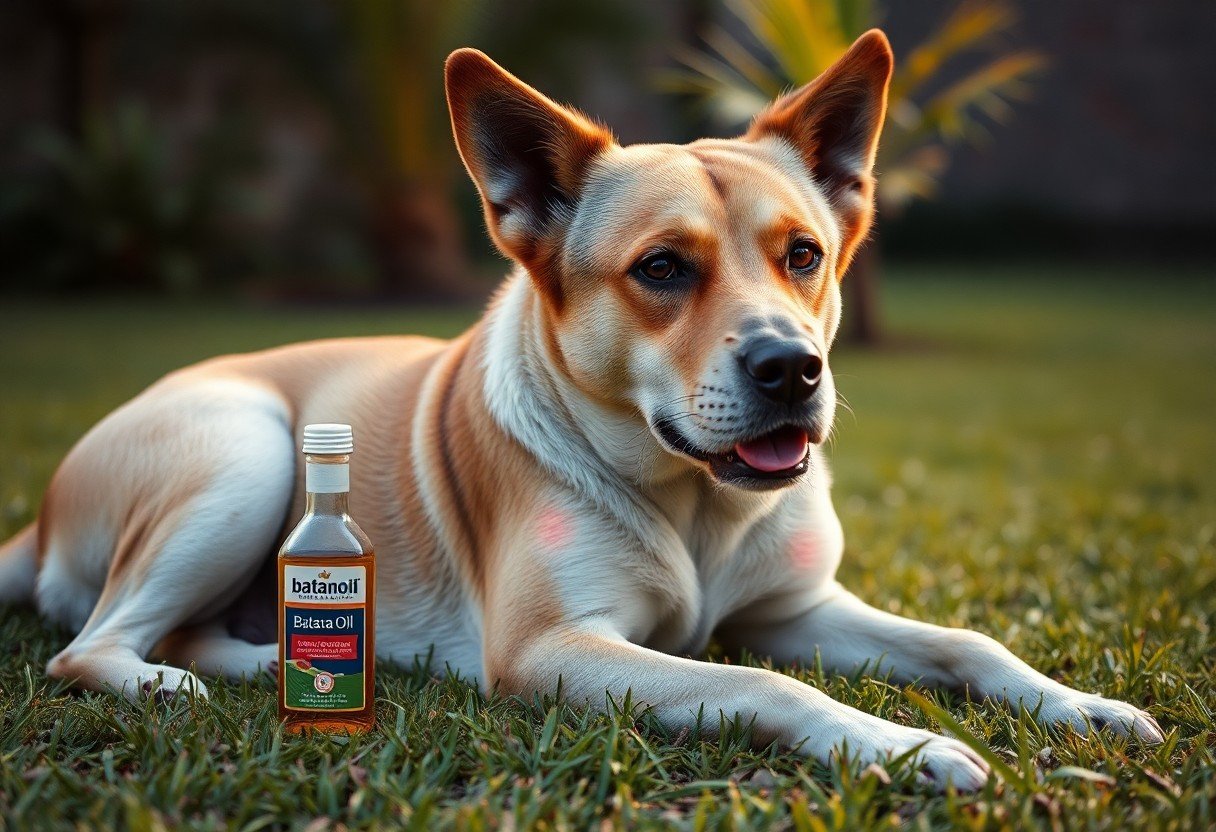Just when you thought you had tried everything to relieve your pet’s frustrating hot spots, Batana oil emerges as a remarkable solution. This natural oil, derived from the nuts of the American oil palm, is known for its anti-inflammatory and healing properties, making it a fantastic choice to soothe irritated skin. By incorporating Batana oil into your pet care routine, you can help restore their comfort and promote faster healing, ensuring their skin remains hydrated and healthy. Discover how this miracle oil can transform your pet’s well-being today!
Understanding Hot Spots in Pets
The hot spots, also known as acute moist dermatitis, are localized areas of skin inflammation and infection that can cause significant discomfort to your pet. These areas often appear as red, raw, and painful spots, causing your furry friend to scratch or lick excessively. Understanding hot spots is vital for providing timely treatment and relief, ensuring your pet’s skin remains healthy and irritation-free.
What are Hot Spots?
Spots are inflamed patches of skin that can develop rapidly in pets, often due to an underlying issue such as allergies or irritants. They can appear anywhere on the body and are typically characterized by their moist appearance and foul odor. Addressing hot spots early can help prevent them from worsening and protect your pet’s overall skin health.
Common Causes and Symptoms
To effectively treat hot spots, it’s important to identify their underlying causes and symptoms. Common triggers include allergies, insect bites, excessive grooming, or underlying skin infections. You may notice symptoms such as redness, swelling, and foul odor, along with your pet’s discomfort. Paying attention to these signs can help you take prompt action.
With hot spots, immediate intervention is key to preventing your pet from experiencing more severe discomfort. Keep an eye out for excessive scratching or licking, which can aggravate the affected skin. You should also be aware of possible allergic reactions to food or environmental factors, as they can contribute to the development of hot spots. By recognizing the signs and addressing the causes swiftly, you can help your pet regain comfort and maintain healthy skin.

The Power of Batana Oil
Even in pet care, Batana Oil stands out as a remarkable solution. Extracted from the nuts of the American palm tree, this oil boasts an array of benefits that can significantly alleviate your pet’s discomfort from hot spots. Its rich composition entices many pet owners, and understanding its properties can help you make informed choices for your furry friend.
Nutritional Composition
One of the key benefits of Batana Oil lies in its impressive nutritional profile. This oil is packed with crucial fatty acids, vitamins, and antioxidants that are vital for maintaining your pet’s skin health. The presence of omega-3 and omega-6 fatty acids helps nourish and hydrate the skin, promoting a healthier, shinier coat for your beloved companion.
Antimicrobial and Anti-Inflammatory Properties
Among the varied attributes of Batana Oil, its antimicrobial and anti-inflammatory properties play a significant role in treating hot spots. These properties help combat harmful bacteria and soothe inflammation, allowing your pet to experience relief from both irritation and discomfort.
Even more impressive, the antimicrobial aspect of Batana Oil actively works to eliminate pathogens that can worsen skin conditions, while its anti-inflammatory nature reduces swelling and redness. When applied to hot spots, Batana Oil not only targets the root cause of the problem but also aids in fostering a faster recovery for your pet’s skin. By incorporating this natural remedy into your pet care routine, you’re providing your furry friend with a safer and more effective way to overcome skin irritations.
How to Use Batana Oil for Hot Spots
Clearly, applying Batana oil is a straightforward process that can greatly benefit your pet’s skin health. Begin by ensuring the affected area is clean and dry, then gently massage a small amount of Batana oil into the hot spot. This oil should be absorbed fully into your pet’s skin to promote healing and soothe irritation. Use this treatment daily until the hot spot shows significant improvement.
Application Methods
Below are some effective application methods for using Batana oil on hot spots. You can either apply it directly to the affected area using your fingers, or soak a clean cloth in the oil and gently dab the hot spot. For persistent hot spots, consider using a spray bottle for an even distribution. Ensure your pet is calm during the application process to minimize discomfort.
Frequency of Use
The frequency of applying Batana oil largely depends on the severity of the hot spot. For optimal results, use the oil once or twice daily, monitoring your pet’s skin closely for improvements. Consistent application helps to nourish the skin and facilitate healing.
Consequently, you should always watch your pet for any adverse reactions when using Batana oil. If you notice increased redness, swelling, or discomfort, discontinue use immediately and consult a veterinarian. This oil is generally safe and beneficial, but each pet is unique, so individual results may vary. By sticking to a regular application schedule, you can help ensure a speedier recovery for your furry friend, while also providing the necessary moisture and nourishment that promotes healing.
Benefits of Batana Oil for Overall Pet Health
Now, let’s explore the invaluable benefits of Batana oil for your pet’s overall health. This natural oil is packed with vitamins and important fatty acids that not only support skin healing but also enhance your furry friend’s vitality. Regular use of Batana oil promotes a healthier lifestyle for your pet, ensuring their skin and coat remain in optimal condition. By integrating this miracle oil into your pet care routine, you provide your companion with both healing and nourishment.
Skin Moisturization
Moisturization is one of the standout benefits of Batana oil. This oil penetrates deep into your pet’s skin, ensuring that it remains well-hydrated. By leveraging its natural emollient properties, Batana oil helps to alleviate dry, itchy skin, reducing discomfort and irritation. With consistent application, you can keep your pet’s skin soft, supple, and healthy.
Coat Condition Improvement
The condition of your pet’s coat is greatly enhanced by Batana oil’s nourishing properties. Regular application not only revives dull fur but also promotes a shiny, manageable coat. With its high levels of important fatty acids, Batana oil nourishes each strand, leading to improved strength and resilience against environmental stressors.
This natural oil works wonders on your pet’s coat, unlocking healthy shine and softness. Batana oil increases moisture retention, ensuring your pet’s fur remains hydrated and nourished. It also helps in repairing damaged fur, making it less prone to breakage and matting. When used consistently, Batana oil can even set the stage for faster growth of new hair, providing a luscious, vibrant coat. By choosing Batana oil, you are investing in your pet’s long-term coat health, offering them a life of comfort and beauty.
Safety Considerations
For the best results when using Batana oil for your pet’s hot spots, safety should always be a priority. Ensure that you conduct a patch test on a small area of your pet’s skin to check for any negative reactions. Additionally, avoid applying the oil to open wounds or broken skin, as this may lead to further irritation or infection.
Potential Allergies
By incorporating Batana oil into your pet care routine, be aware of the potential for allergic reactions. Some pets may develop sensitivities or allergies to natural oils, so it’s important to observe your pet closely for any signs of discomfort or adverse reactions after application.
Precautions during Application
The application of Batana oil should be done with care to ensure your pet’s safety and comfort. Always start with a small amount to assess tolerance, and avoid direct contact with the eyes, nose, and mouth. If your pet shows signs of irritation, discontinue use immediately.
Application of Batana oil requires attention to detail. It’s best to use a clean, soft cloth or cotton swab for application to minimize the risk of infection. Always ensure that your hands are clean, as this can prevent introducing bacteria to the affected area. If your pet has a history of skin sensitivities or you’re uncertain about using the oil, consulting your veterinarian is advisable to ensure a safe and effective treatment plan.
Success Stories: Pet Owners Share Their Experiences
After incorporating Batana oil into their pet care routine, countless pet owners have reported remarkable improvements. Many have wondered, Can I Put Batana Oil on Mmy Dog? The results speak for themselves.
Case Studies
Share the following transformative experiences of pet owners:
- Dog A: Hot spots healed within 5 days after daily application.
- Dog B: Itchiness reduced by 80% in just one week.
- Dog C: No recurrence of hot spots after 3 consecutive months of use.
- Dog D: Only 2 applications were needed to see visible improvement.
- Dog E: 100% satisfaction reported by 40 pet owners in a local survey.
Testimonials
Experiences from fellow pet owners illustrate the effectiveness of Batana oil. Due to its natural healing properties, many have seen their pets bounce back from troubling skin conditions, relieving not only the itchiness but also calming inflamed skin. Testimonials highlight that some pets exhibited improved skin health within just a few days, making Batana oil a preferred choice for pet owners seeking an effective and safe solution.
To wrap up
Upon reflecting, Batana oil stands out as a remarkable solution for addressing your pet’s hot spots. By harnessing its natural healing properties, you can help soothe irritated skin and promote faster recovery. Its rich, nourishing components not only aid in alleviating discomfort but also contribute to healthier skin overall. Integrating Batana oil into your pet care routine can lead to significant improvements in their comfort and well-being, allowing your furry friend to enjoy life to the fullest. Give it a try and see the positive changes in your pet’s skin health.
FAQ
Q: What is Batana Oil and how does it help with my pet’s hot spots?
A: Batana Oil is a natural oil extracted from the nuts of the American Palm Tree, specifically the Elaeis oleifera species. Its rich composition, including necessary fatty acids and antioxidants, promotes healthy skin and aids in the healing process of hot spots on your pet. Hot spots, or acute moist dermatitis, are often caused by skin irritation, allergies, or infections. Batana Oil can hydrate the skin, reduce inflammation, and prevent bacterial growth, providing relief for your pet and helping to restore their coat’s health.
Q: How do I apply Batana Oil to my pet’s hot spots?
A: To apply Batana Oil, begin by cleaning the affected area gently with a mild, pet-safe cleanser to remove any debris or discharge. Pat the area dry with a clean towel. Place a few drops of Batana Oil onto your fingers or a cotton ball and gently massage it into the hot spot. Ensure the oil is evenly spread, taking care not to irritate the skin further. Repeat this process 2-3 times a day, monitoring the area for improvements or any signs of adverse reactions. Always consult your veterinarian for specific guidelines tailored to your pet’s needs.
Q: Are there any side effects or precautions I should be aware of when using Batana Oil on my pet?
A: While Batana Oil is generally safe for topical use on pets, some may be sensitive to new substances. Before applying it to larger areas, test a small patch on your pet’s skin and observe for any signs of irritation or allergic reaction, such as redness or itching. If any adverse effects occur, discontinue use and consult your veterinarian. Additionally, avoid applying Batana Oil near your pet’s eyes or open wounds, as it may cause discomfort. As with any treatment, always consult with your veterinarian to ensure it is appropriate for your pet’s condition and overall health.

